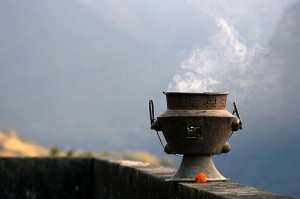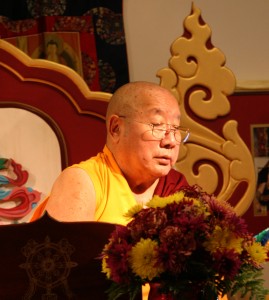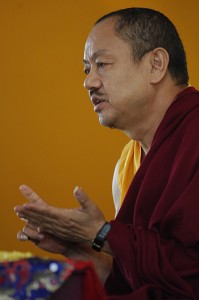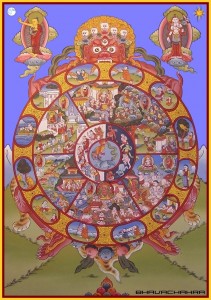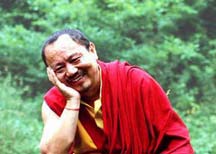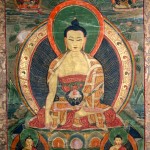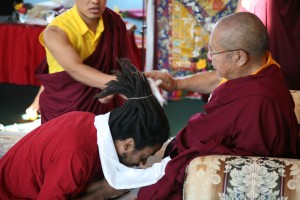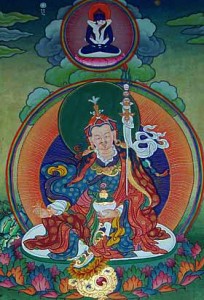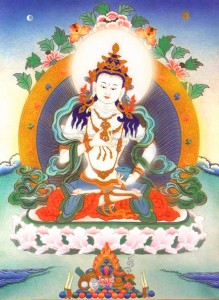The following is from a series of tweets by Jetsunma Ahkon Lhamo:
An incense offering to be made first thing every morning with the purest intention and incense.
“This pure supreme incense, which bears the scent of pure moral self-discipline, by the blessings of mantra, mudra and samadhi.
Is offered to the realms of the buddhas. May this fragrant incense completely please and satisfy the ocean-like assembly of buddhas!
NAMA SARWA TATHAGATA BENZA DUPE PRATITSA PUDZA MEGHA SAMUDRA SA PHA RA NA SAMAYE AH HUNG”
This is a sacred way to begin the practice or start one’s day. One can also offer morning tea or coffee with ring finger on right hand, flicking the substance with finger in all directions with mindfulness.
Sadly it is often the case that practitioners perform a session every day, then forget to carry it forward, to bear it always. One way to antidote that is making morning offerings, and placing the Tsawei Lama above the crown of one’s head. Carrying that samaya is beautiful. Every moment think the Lama lights your way, protective and enlightening all.
To ready for sleep , the Lama descends through the central channel into the heart chakra where the Lama is enthroned on the lotus throne in the heart. From there, Tsawei Lama radiates compassion and wisdom all through the night. Upon awakening move Lama up to above the head, and there Tsawei Lama remains and blesses us all.
One may recite mantra before placing Tsawei Lama above head and on heart. And signs may occur. Like: auspicious dreams or other miraculous visions!
Copyright © Jetsunma Ahkon Lhamo. All rights reserved
